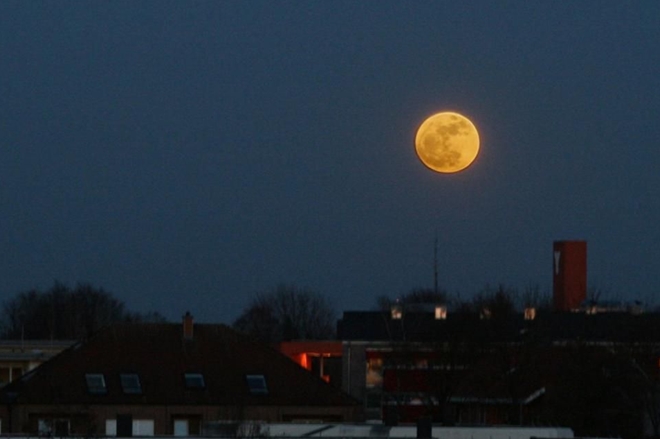Supermoon set to light up the sky this week
Stargazers will get a close-up look at Earth’s natural satellite this week thanks to the brightest supermoon event of the year.
A supermoon phenomenon occurs when a full moon, on its oval-shaped orbit, is at its closest to us, known as perigee, which is about 356,000 kilometres as measured from the centre of the Earth to the centre of the moon.
 |
| The word Supermoon came into popular use in 2011, where three Supermoons in a row graced the night sky. Shown here is the central one, observed over Munich, Germany. Supermoons are brighter and closer than any other full Moons experienced on Earth, corresponding to lunar perigee coinciding with the full phase. Photo: KAI SCHREIBER / FLICKR |
It takes place when the moon’s orbit brings it to the closest point to Earth while at the same time bathed in sunlight, giving the moon its bright appearance.
During such an event the moon looks to be about 14 per cent bigger and about 30 per cent brighter compared with when it’s at the farthest point in its elliptical orbit around Earth, known as apogee.
Although closer to the Earth, this week’s supermoon will not be as colourful as last month’s super blood moon eclipse that turned the moon a stunning shade of orange.
While there will be another supermoon in March, this week’s will technically be the closest and therefore the biggest of the year.
Given the moon orbits the Earth about once every 28 days, there is usually 12 full moons a year (sometimes 13), and there is always one or two that happen to be at the closest point to the Earth in its orbit.
However, despite the supermoon’s colloquial name, Dr Brad Tucker from the ANU Research School of Astronomy and Astrophysics says don’t let your expectations get too high.
“The general unaided eye, you won’t notice it hugely or dramatically bigger,” he said.

